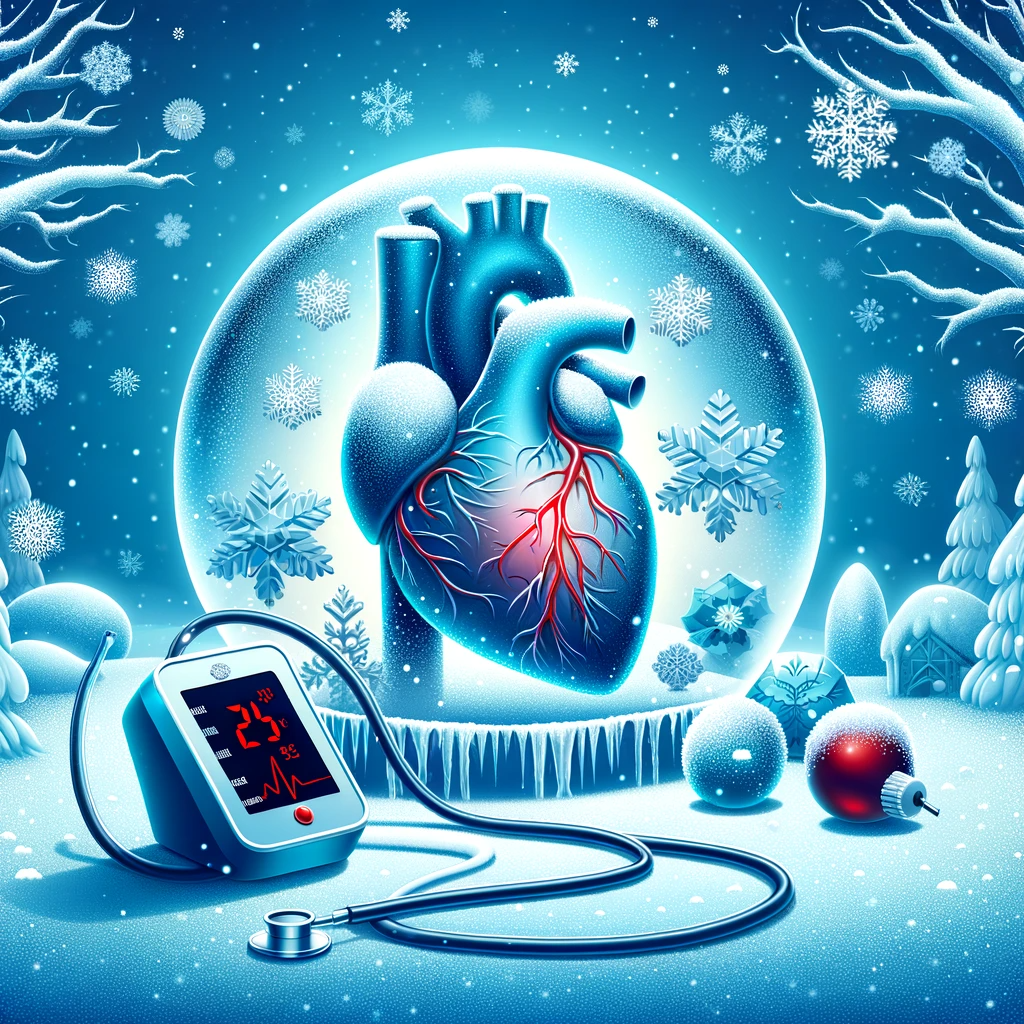Cold weather elevates blood pressure, because low temperatures cause blood vessels to narrow. This week’s chilly snowy conditions in the USA and in Europe, how they can impact our health?
It takes more power for the heart to pump blood through the narrow vessels, that is why the blood pressure increases.
Highlighting some of the consequences of cold weather, Age UK director Caroline Abrahams told: “The cold raises blood pressure, which in turn increases the risk of a heart attack or stroke, and breathing in cold air can also increase the risk, and impact, of serious illnesses like flu and pneumonia.”
How the cold weather impacts blood pressure?
Cold weather causes changes not only in our blood vessels. Cold affects stress hormones as well. This spikes blood pressure.
“Many patients see their blood pressure rise in the winter, as cold temperatures cause blood vessels to constrict (vasoconstriction), increasing resistance to blood flow and raising blood pressure,” explains Dr Martin Thornton.
He said: “Exposure to cold can also trigger the release of stress hormones like adrenaline, which may further elevate blood pressure and heart rate.”
The reduction of daylight this time of year and the corresponding lifestyle changes also plays a role.
“Shorter daylight hours and seasonal changes can also affect mood and stress levels, which can indirectly influence blood pressure,” adds Thornton. “Additionally, people are often less physically active in colder weather.
“Many find themselves consuming more calorie-dense comfort foods, or exercising less, which could contribute to higher blood pressure levels.”
Conversely, many people find that their blood pressure is lower during the summer.
How to manage blood pressure during the winter?
Stay active indoors
“Overexertion in cold weather can put additional strain the heart, so try at-home workouts, such as yoga or pilates,” suggests Thornton.
Dress warmly
“Sudden exposure to extreme cold can constrict your blood vessels, so reduce the stress that cold temperatures place on your heart by layering appropriately,” recommends Thornton.
Eat a balanced diet
“Maintaining a healthy diet and avoiding foods high in salt and fat can help prevent blood pressure spikes,” says Sharma.
Manage stress
“Use relaxation techniques such as meditation or breathing exercises, and watch out for common stress triggers,” suggests Thornton.
Relevant numbers
Seasonal Variations in Blood Pressure: Research indicates that blood pressure tends to be higher during colder months. A study analyzing over 60,000 adults treated for hypertension between 2018 and 2023 found that systolic blood pressure increased by up to 1.7 mm Hg in winter compared to summer. Additionally, blood pressure control rates decreased by up to 5% during winter months (American Heart Association Newsroom)
Temperature and Blood Pressure Relationship: A meta-analysis encompassing 159 studies reported that each 1°C decrease in temperature was associated with a 1.6% increase in cardiovascular disease-related mortality and a 1.2% increase in morbidity. The most pronounced effects were observed in coronary heart disease mortality and aortic aneurysm and dissection morbidity (Frontiers).
Indoor Temperature Effects: A study involving 4,659 participants found that individuals in the coolest homes had average systolic and diastolic blood pressures of 126.64 mm Hg and 74.52 mm Hg, respectively, compared to 121.12 mm Hg and 70.51 mm Hg in the warmest homes. The effect of indoor temperature on blood pressure was more pronounced among those who did not exercise regularly (University College London).
Cold Exposure and Cardiovascular Outcomes: Research has shown that cold exposure can lead to increased blood pressure and changes in blood components, potentially inducing conditions such as hypertension and myocardial infarction. For instance, a study reported that a 10°C decrease in temperature was associated with a 5.7 mm Hg increase in systolic blood pressure (The Clinics).






